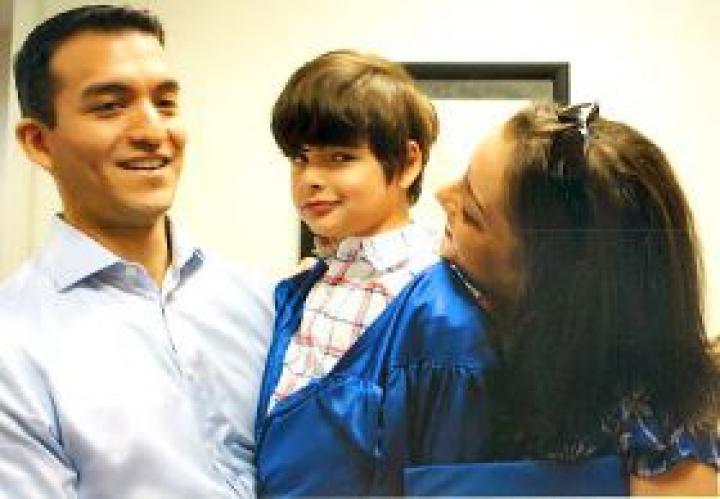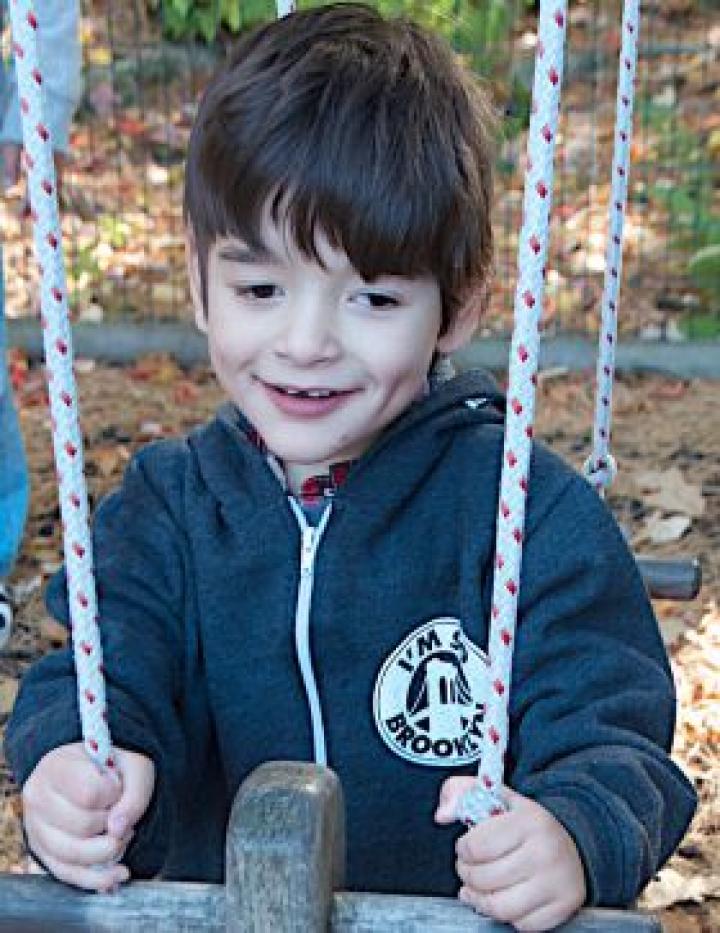Share
As we begin our annual Staff Appreciation celebrations, we want to recognize all of our staff members throughout the YAI Network, who enhance the lives of thousands of people with disabilities and their families. This year, we have moved our festivities to coincide with National Direct Support Professionals Recognition Week. Many regional celebrations will continue throughout the Fall. We'd like to share Thomas’s story which illustrates our staff’s commitment to ensuring everyone we support has opportunities for living, loving, working, and learning.
***
"When you have a child with complex needs, you need people who have the imagination to see your child in a way that others can’t." -- Susanna Castillo.
 Santiago and Susanna Castillo found that imaginative approach to help their son Thomas, who is medically fragile with developmental delays and a visual impairment, once he started at the New York League for Early Learning's Roosevelt Children's Center. Thomas was unable to chew, hold up his head or make his preferences known. He was withdrawn.
Santiago and Susanna Castillo found that imaginative approach to help their son Thomas, who is medically fragile with developmental delays and a visual impairment, once he started at the New York League for Early Learning's Roosevelt Children's Center. Thomas was unable to chew, hold up his head or make his preferences known. He was withdrawn.
With the help of Amy Cooper, the school's physical therapist, and Yusuke Namiki, Thomas's teacher, life began to change for Thomas and his family.
Seeing Beyond Disability
When Thomas arrived at Roosevelt, he was unable to sit independently and used adaptive seating with full support. But that didn't stop Amy.
"I had to show him early on that he was going to have to work hard for me," Amy said. "At the start of physical therapy, he wanted to sit on the ground, but I made him stand up with support."
Promoting Independence
Using a hammock, a swing, a tricycle and a modified skateboard, Amy showed Thomas he could move himself independently. Defying doctors’ expectations, Thomas began walking with many supports, including a walker, and then holding onto Amy's pocket. But his world changed dramatically when he took his first steps and began to walk independently.
"Once he figured out that he could stand up and walk away, he began interacting with his environment," Amy said.
The Castillos recently took their first-ever family vacation without a wheelchair. "He has discovered independence," Susanna said.
 Providing Choices
Providing Choices
Meanwhile, Yusuke focused on helping Thomas develop communication. "When you have an intent to communicate, your world opens up," he said.
To help Thomas gain some control over preferences, Yusuke had to figure out things Thomas disliked.
Using tactile cues, Thomas, who was beginning to feed himself, could choose what he wanted to eat. Soon Thomas was using an adaptive communication device, and began to let people know his preferences.
The family supported the school’s approach with Thomas, ensuring that the instruction provided in the school was carried out in the home.
"They were never frustrated or sad. They were always upbeat," Susanna said. "They always treated him like a regular kid, which sometimes means knowing when a child is trying to outsmart you! They would set limits for him and tell him no when they had to."
 'A Sense of Normalcy'
'A Sense of Normalcy'
Today, Thomas is empowered to let his preferences be known. "He uses Yusuke’s techniques to indicate when he wants food, when he wants to go outside and when he wants to play with his favorite toy," Susanna said.
The Castillos credit the Roosevelt staff with providing their son with much more than language and mobility.
"They gave our family a sense of normalcy that we never thought we would have," the Castillos wrote in a letter to NYL following his graduation from the preschool. "He now reaches for dessert when he hasn’t finished his dinner and can grab his favorites toy away from his little sister, Zoe. While those might seem like negative behaviors to a lot of parents, we are thrilled that he is no longer content with having life happen to him. We strongly feel that Yusuke and Amy gave us our son."
